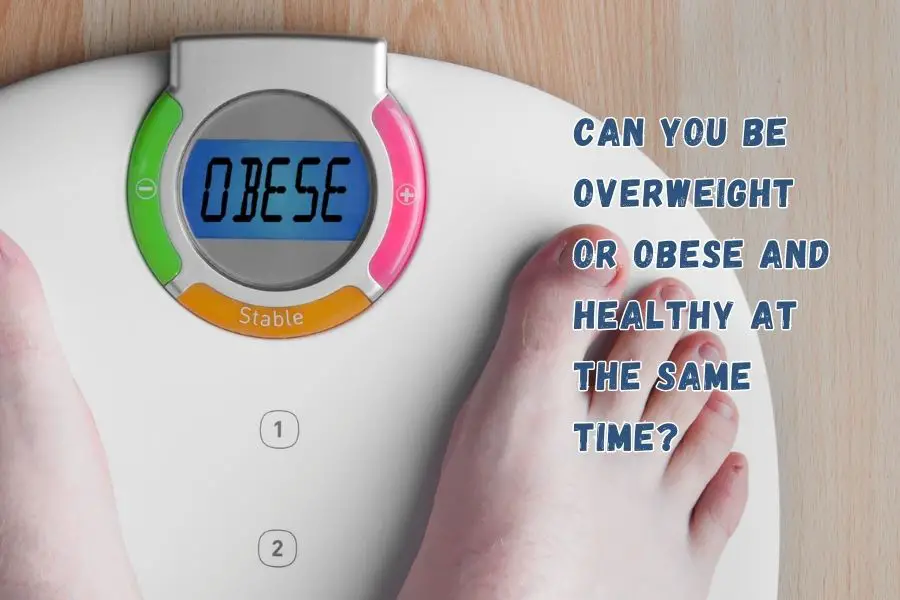If you have someone dear in your life who is struggling with weight issues and you don’t know how to approach the subject or how to help them, this article is for you.
Helping a loved one in their weight loss journey can be a delicate and sensitive matter. It is important to approach the topic with care, respect, and understanding. This article provides practical guidance on how to help a loved one lose weight effectively, while fostering a supportive and encouraging environment.
1. Don’t Approach the Topic of Weight Loss: Wait for the Right Cues
All meaningful changes must come from within. Even if you believe your loved one would benefit from losing some weight to improve their health, it is crucial to wait for their cues and support them when they are ready, refraining from directly approaching the topic of weight loss.
Weight loss is a very sensitive subject and it is almost impossible to tell someone that they need to lose weight without hurting their feelings.
I have met many overweight or obese individuals who are funny, kind, caring, and intelligent. While I know they struggle with many health issues and I wish that I could help them in some way to lose weight, there is absolutely no chance that I would suggest to them that they should lose a few pounds, I’ve come to realise that all meaningful and lasting changes can only happen when someone is internally motivated.
Real transformation only occurs when people take ownership of their thoughts, feelings, and behaviors, aligning their actions with their true values and aspirations. External pressure such as nagging or pushing may lead to temporary changes, but they rarely sustain over time.
You have probably heard stories about people who are unable to buckle their airplane seat belts even with extenders or told by their doctors after a few trips to the ER that they wouldn’t be around for many more years, finally find the motivation to change their diet and lifestyle to lose weight and improve their health.
It’s usually when the pain of maintaining the status quo becomes greater than the pain of making much needed changes that people are truly ready for transformation.
Therefore, it is essential to be patient and wait for the right moment when your loved one expresses a genuine desire to make a change. For example, if a mother inquires how you manage to stay in such a good shape after having three children, or if a father asks how you maintain a six-pack in your 50s, it’s an indication that they are ready for change.
And when this happens, be prepared to listen attentively without judgment or criticism. Allow them to share their feelings, concerns, or weight-related goals openly and honestly. By creating a safe space for communication, you can better support them on their journey towards positive transformation.
2. Lead by Example: Live a Healthy Lifestyle and Treat People with Care and Respect
Actions speak louder than words, especially when it comes to inspiring positive changes in others. Lead by example by adopting healthy eating habits, maintaining an active lifestyle, and taking care of your own well-being. This sets a positive example and shows your loved one that you are committed to a healthy lifestyle and inspire them to do the same.
As mentioned above, weight loss is a very difficult and sensitive topic and and it’s crucial to approach it only when you receive cues that your loved one is ready for a change. However, in the meantime, what you can do to inspire positive changes in them is to lead by example.
If you eat well, keep an active lifestyle, maintain a positive mindset, and treat people who are struggling with weight and health issues with the utmost care and respect, just as you would like to be treated, they will be more likely to trust you, open up to you, and follow your example.
If you have found weight loss success with the carnivore diet and are thriving but remain respectful of other people’s dietary choices (remember you once had the mindset that they have), they may become curious and consider trying it out too.
People are more receptive to positive messages and success stories. I’ve heard so many stories of people finding weight loss success with the carnivore diet and subsequently inspiring their families and loved ones to follow suit.
And imagine the ripple effect of your actions. If you could help a loved one to lose weight and improve their health and quality of life, they may, in turn, positively influence somebody else in the same way.
In summary, setting a positive example and approaching it with genuine, honest, and caring intentions will likely inspire your loved ones to follow your lead and listen to your advice. By living the change you wish to see in them, you create a compelling and supportive environment for their growth and transformation.
3. Use Stacking Approach: One Small Change at a Time
Encourage your loved one to take a gradual approach to weight loss and nail one healthy habit at a time. Suggesting a multitude of dramatic changes all at once may feel overwhelming and unsustainable. Instead, help them focus on making one small positive change at a time. Once they have successfully integrated that change into their routine, encourage them to add another one and so on.
Losing weight is extremely hard for most people. Most people don’t become overweight or obese overnight, they usually become overweight or obese as a result of months or years of eating a poor diet and living an unhealthy lifestyle. Breaking these ingrained habits can be extremely difficult.
While some people may succeed by immediately overhauling their diet (e.g. switching from a Western-style diet to a strict carnivore diet overnight), others may feel overwhelmed with too many changes all at once and a stacking approach may better suit them.
For instance, you could begin by suggesting they cut out all processed foods. Once that becomes a habit, encourage them to make good quality meat the center of their diet and limiting carbohydrate intake. Once this goal is achieved, suggest eliminating all liquid calories such as soft drinks, sport drinks, flavored milk and opt for water instead. This stacking approach allows for sustainable and long-term lifestyle changes. By taking small concrete steps, your loved one will feel a sense of accomplishment and be more motivated to continue making positive changes.
If you are looking for practical and effective weight loss tips that are backed by science, please check out our popular post: Top 15 Tips to Lose Weight Fast.
It is important to be patient during this process and remember that everyone’s journey is unique. Support your loved one’s progress, no matter how small, and be a source of encouragement throughout their weight loss journey.
4. Offer Practical Support: Cooking Healthy Meals and Exercising Together
Support your loved one’s weight loss efforts by providing practical assistance such as involving them in the meal preparation process, cooking healthy meals for them, or becoming their exercise buddy.
Your support can make a big difference to your loved one’s weight loss success. For example, a study has found that people who did a 15-week online weight loss program with a buddy experienced greater weight than those who went through the program alone.
Below are examples of practical things you can do to support your loved one:
- Help them with shopping for healthy food during the initial stage
- Offer to review their meal plan or plan meals together with them
- Become an exercise partner by joining a gym, going for hikes, or trying new fitness classes together. This will make the weight loss journey more enjoyable and less daunting
- Avoid bringing home junk food and refrain from insisting on unhealthy treats, even on special occasions
- Assist in activities that free up their time to exercise, such as helping with chores or childcare responsibilities
- Offer to cook healthy meals for them if they get sick or become too busy.
Remember, the goal is to create a supportive and empowering environment where your loved one feels encouraged to make healthy choices. By actively participating in their journey, you demonstrate your dedication to their well-being and inspire them to stay committed to their weight loss goals.
5. Focus on the Positives: Encouragement and the Sandwich Approach
Positivity and encouragement play a crucial role in supporting your loved one’s weight loss journey. Offer plenty of praise for their efforts, achievements, and progress. Celebrate milestones, no matter how small, to boost their motivation and self-confidence.
In 1982, Dr. Daniel S. Kirschenbaum from the University of Wisconsin conducted an experiment with a group of bowlers on the power of positivity now widely known as the “bowling study“.
He took a group of bowlers and divided them in two groups.
In group one, he asked the members to review their performance after each session, identify what they did well and then focus on the positive aspects in subsequent rounds.
In group two, however, he asked the members to review their performance and identify the mistakes they made and remind themselves to avoid those mistakes in subsequent rounds.
He found that the bowlers who focused on what they did well showed a 100% improvement in bowling scores compared to the bowlers who focused on avoiding the mistakes.
Positivity indeed has a lot of potential power and it makes sense to focus on our strengths and what we do well rather than focusing on our mistakes and weaknesses, whether it is losing weight or any other fields of endeavors.
If you want to address areas that hinder your loved one’s progress, it may be a good idea to use the sandwich approach. Start with a positive comment or reinforcement, provide constructive feedback or suggestions for improvement, and end with another positive note. This approach helps maintain a supportive atmosphere while addressing areas that may require attention.
For example, if your loved one has been consistent with sticking to a low carb diet but struggling to break the constant snacking habit, you could say, “I’m so proud of how you’ve been able to stick to a low carb diet for five weeks! You’ve made great progress. Let’s work together to find some strategies to cut down on snacking and move to two main meals a day. But overall, you’re doing an amazing job!”
Remember to be mindful of your tone and delivery, ensuring that your words are motivating and supportive rather than critical or discouraging.
6. Be Patient: Weight Loss Takes Time
Patience is key when supporting a loved one’s weight loss journey.
Losing weight is a challenging process that requires time, dedication, and consistency. Avoid pressuring your loved one to achieve quick results or setting unrealistic expectations like losing 30 pounds in three months or fitting in a size 6 dress in six months because you or someone else has successfully done that. Instead, remind them that progress is not always linear and that setbacks are a natural part of the journey and offer your unwavering support and reassurance during moments of frustration or doubt.
In addition, encourage your loved one to focus on tangible health improvements such as increased energy levels, improved mood, or better sleep quality. Help them recognize that weight loss is not just about physical changes but also about overall health and well-being. Remind them to celebrate each step forward, regardless of the number on the scale.
The key to success is consistency, no matter how slow their progress may seem, if they keep moving forward at their own pace, they will eventually reach their goals.
7. Be Flexible: Everyone Is Different
When helping a loved one lose weight, it is important to recognize and embrace the uniqueness of each individual’s journey. People have diverse body types, metabolisms, preferences, and lifestyles. Therefore, a one-size-fits-all approach to weight loss is often ineffective and can lead to frustration or even make them quit altogether.
Remaining flexible in your approach means being adaptable and open-minded to tailor strategies and solutions that align with your loved one’s specific needs and circumstances. What works for you effectively may not work for them. You may have been very successful in losing the excess fat with the carnivore diet or a ketogenic diet but your loved one may feel better with a low-carbs animal-based diet. You may enjoy going to the gym but your loved one may hate repetition and prefer an active sport or nature-based activities instead.
Moreover, men may lose weight faster because they tend to build muscle more easily compared to women due to their greater levels of testosterone. Younger people also tend to lose weight more easily and get in shape quicker than older folks because they generally have a higher basal metabolic rate. People with some medical conditions (e.g. leptin resistance) may find it harder to lose weight than people who are metabolically healthy. Therefore, it is important to be flexible in approaches as well as expectations regarding weight loss outcomes.
Flexibility also means being attentive to their emotional needs. Weight loss can be emotionally challenging, and your loved one may encounter setbacks or frustrations and their road to weight loss success may be very different from yours. So, show empathy, be a supportive listener, and offer encouragement during difficult moments.
Conclusion
Supporting a loved one in their weight loss journey requires empathy, understanding, and a commitment to their well-being. By waiting for the right cues, leading by example, using the stacking approach, providing practical support, focusing on the positives, and exercising patience, you can create a nurturing environment that encourages healthy habits and long-term success.
Remember, every individual’s weight loss journey is unique, and progress may vary. Your role as a supportive friend or family member is to offer guidance, encouragement, and a non-judgmental space where they feel empowered to make positive changes. Together, you can navigate the challenges and celebrate the milestones on their path to a healthier lifestyle.
Other posts you might be interested in
How to Lose the Last Few Pounds on the Carnivore Diet?
Top 15 Tips to Lose Weight Fast with the Carnivore Diet
Is Carnivore the Best Anti-Aging Diet Around?
How to Avoid Weight Gain During the Holidays
11 Common Carnivore Diet Mistakes
Who Might Benefit from a Strict Carnivore Diet?
Raw Meat Vs Cooked Meat on the Carnivore Diet
Disclaimer: The information in this post is for reference purposes only and is not intended to constitute or replace professional medical advice. Please consult a qualified medical professional before making any changes to your diet or lifestyle. Please check out our disclaimer for more detail.





